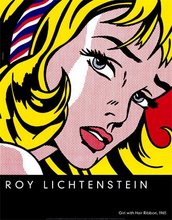
The Lee Resolution was an act of the Second Continental Congress declaring the Thirteen Colonies to be independent of the Kingdom of Great Britain. It was proposed by Richard Henry Lee of Virginia on June 7, 1776. Delegates from 12 colonies voted to pass it; however, delegates from New York believed that they had not been sufficiently empowered as representatives so they abstained (New York's vote for independence passed on July 9). Although it was not simultaneously supported by all of the colonies, it was passed by the Congress on July 2 and formed the core of the United States Declaration of Independence, adopted on July 4.
It read:
Resolved, That these United Colonies are, and of right ought to be, free and independent States, that they are absolved from all allegiance to the British Crown, and that all political connection between them and the State of Great Britain is, and ought to be, totally dissolved.
That it is expedient forthwith to take the most effectual measures for forming foreign Alliances.
That a plan of confederation be prepared and transmitted to the respective Colonies for their consideration and approbation.
However, few Americans today remember the Lee Resolution, and July 4, the date of the Declaration of Independence, is celebrated as Independence Day.



No comments:
Post a Comment